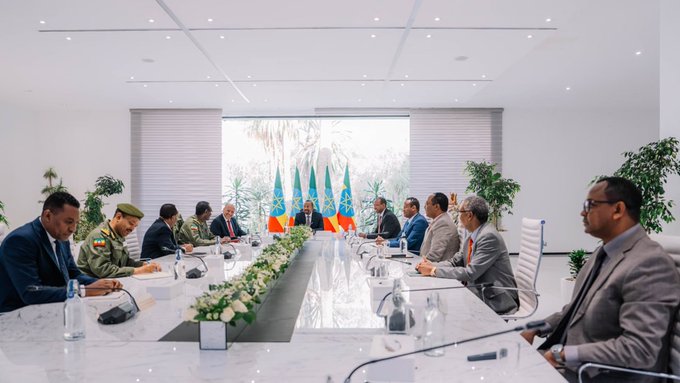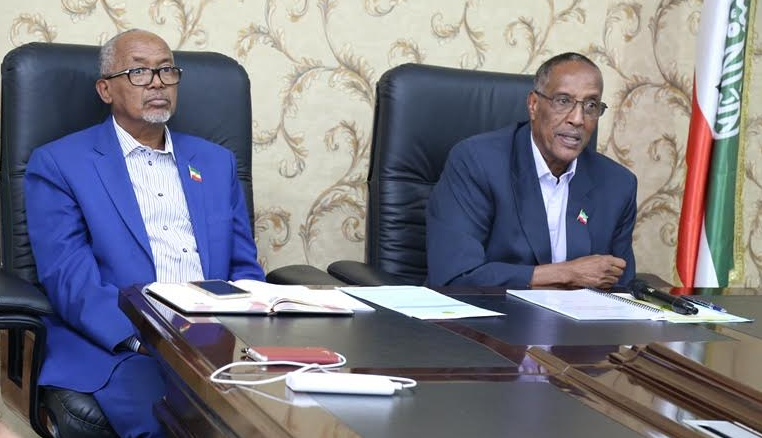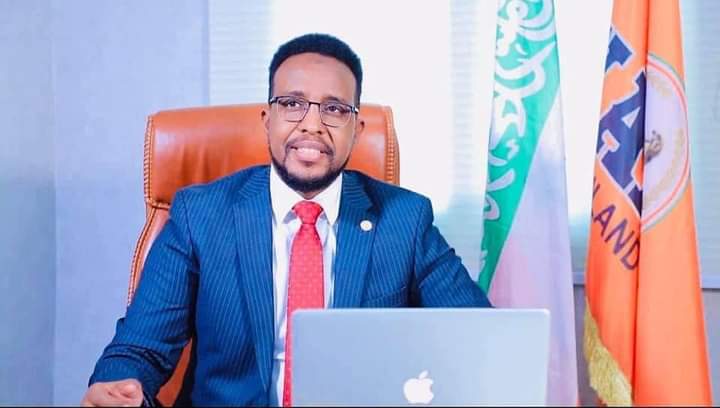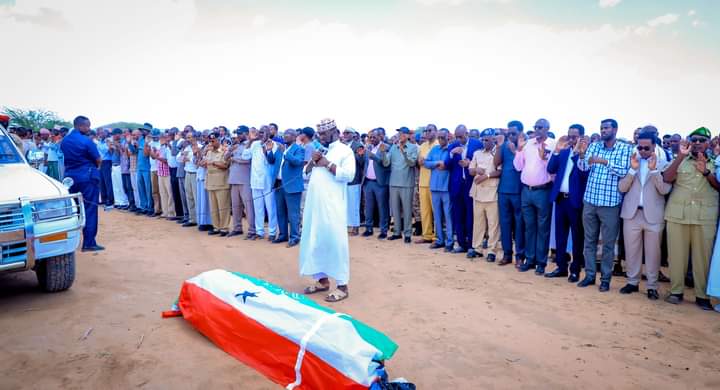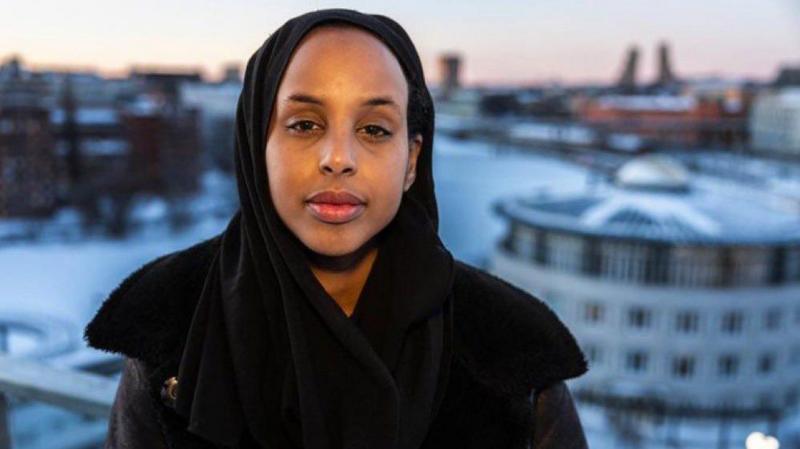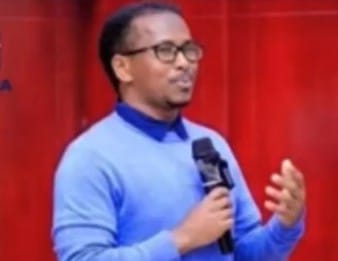Wednesday July 11, 2018By Osman Awad
There
is a similarity between Ethiopia and Somalia. Let us look at the historical
facts that happened in the past for the two nations. Ethiopia was a combination
of two countries which were Ethiopia and Eritrea. The combinations were created
1952 but ended in 1991. Ethiopia was never colonized, even though Italian
fascist invaded and ruled seven years in Second World War. Ethiopia has many
diversity community and ethnic background. Ethiopia has different culture,
language, religion and creeds.
As
I mentioned earlier, Ethiopia and Eritrea were separated, and Eritrea became an
Italian colony whereas Ethiopia enjoyed the partition of Africa. After the
defeat of the Italian colonial army, in 1942, Eritrea came under the
administrated by the British Military Administration until 1952. Unfortunately,
the United Nation General Assembly forced Eritrea to become a federal state
with Ethiopia against the wish of the Eritrean people. In addition, in 1962,
the king of Ethiopia dissolved the Eritrea parliament. After 30 years of
struggle, Eritrea gained its independence in 1991 after defeated the
communistic regime of the Ethiopia.
Since
1890 the Eritrea was colonized by the Italian government and was ruled until
the Second World War. After Italy was defeated in the Second World War, the
British took over and ruled Eritrea since 1952. Same as Ethiopia, Eritrea has
many diverse society and ethnic groups. The boundaries of the present-day was
created by colonizers that called the partition of Africa or scramble for
Africa.
Ads By Google In
Africa as well other continents, the ethnic division of the neighboring
countries has always been the issue. Boundaries of the Africa countries have
been the biggest peace obstacle between Africa nations. For almost 20 years,
Ethiopia and Eritrea had a border clash that killed more than 300,000 solders
with very short period.
The
Prime Minister of the Ethiopia has made a landmark and new vision. Not only has
he reached a historical milestone, but it is brilliant and unbelievable
movement that achieved one of the African leaders. He simply accepts the
reality and convince his people by creating a peace and tranquility between
Ethiopia and Eritrea. To end hostile environment between two country, Ethiopia and
Eritrea is wonderful idea.
Prime
Minister Ahmed Abiy is a good example on the leadership behavior in Africa and
particularly in horn of Africa. He initiated the peace, development, democracy
and open minded. He started a new chapter and new opportunities that never existed
in the horn of Africa. Peace is the key of the human life. The population of
the Horn Africa have been starved for peace. Without peace there is no possible
to accomplish of education, business, heath and development that is the
reality.
The
Horn of Africa leaders have to wake up and understand the reality. There is no
point that the President of Djibouti has been President for life. Eritrea
president to decide whether he wants to allow a multiparty system or to resign.
South Sudan leaders have no option, but they must accept the peace or to quit
politics and let them South Sudan people to decide their destiny. The President
of Sudan must have accepted to vacant the seat of the presidential, because he
has been the president of the country more than 24 years. Since the President
Daniel Arap Moi resigned, Kenya has been practiced full-fledged democracy. The
whole of the Horn of Africa leader must have accepted to vacant the office, or
they must have follow up their new role model leader, the Prime Minister of
Ethiopia Ahmed Abiy.
Somalia Issue
Always
there is an opportunity, the President Mohamed Abdullahi Farmajo has a gold
chance to solve the Somalia problem and act like new prime minister of
Ethiopia, Ahmed Abiy. The major problem of the Somalia is the issue of
Somaliland. If that problem solved, Somalia will be free from chaotic and
devastating that have been facing more than 27 years. The issue of terrorist is
easy to tackle, the issue of the regional states is easily manageable, and
tribal threats will be minimized.
Historical facts
After
Somaliland declared withdrawal from the union with Somalia, African countries
have accused Somaliland of deliberately breaking the African union declaration
about inherited borders from the colonies. Most of the people do not know the
history of the unification of the Somali nation, Somalia was an Italian colony
and gained its independence from Italy on July 1, 1960. Somaliland gained its
independence on June 26, 1960 from Great Britain that had protected it for more
than 70 years. After gaining independence, Somaliland unified with Italian
Somalia. Though Somaliland and Somalia were united under one government, they
operated as two separate countries, with different legal, administrative, and
educational systems. However, this apparent unification concealed deep
institutional and historical divisions, as the process of unification was
itself quickly and chaotically performed. Signs of Southern political and
economic dominance in the newly formed state emerged early on, as the Act of
Union mandated a unitary, centralized government, not the federal system
preferred by Somaliland leaders. Centralization continued under the autocratic
regime of Mohamed Siad Barre, Somalia’s leader from 1969 to 1991.
Somalia’s
problems are basic with western political style; Somali society has not shared
the same values, historical based politics, norms, customs and political
culture and vice versa. Somaliland’s political culture is basic with
Westminster political style that carries out historically based, widely
shared-beliefs, feelings, values that outline and serve as a link between citizens
and governments. In contrast, Somalia’s political culture is basic with the
Italian political system.
Scholars
have proven that the Somali people cannot share the same interest as well as
ever make up a single political unity party due to their historical
differences. Before the colonial era, the ruler of Somalia was the sultan of
Zanzibar. As the historians mentioned, 1892 The Sultan of Zanzibar had given up
the ports of Barva, Merca, Mogadishu, and Warsheikh directly to Italy for a
term of 25 years for an annual rent of 160,000 rupees. The Italians were free
to profit from the coast, but it still remained the property of the Sultan of
Zanzibar. In contrast, 1866 Khedive Ismail Pasha, the ruler of Egypt, claimed
that Somaliland was part of the Red Sea coastal area that the Turkish Ottoman
Empire transferred to his jurisdiction.
To
find out a permanent peace in Somalia, it is an inevitable to acknowledge the current
president Somalia Mr. Mohamed Abdullahi Farmajo to recognize Somaliland
sovereignty. At the same time, come to common ground. The success and failed
for both countries (Somalia and Somaliland). As Somalis, the reconciliation
must come from within their border and not imposed by a foreign entity. Each society
in the world has its own unique way of solving their own conflicts through
their values, culture, customs and their laws.
Recommendation
A
reciprocated relationship between the two nations needs to be reached. The two
nations (Somalia and Somaliland) should live peacefully and exchange ideas on
improving each other’s political and economic institutions for the sake of the
Somali people in the region. The current politicians of the two countries
should work to set up an atmosphere that can help lay the groundwork for future
generations to work together and strengthen stability in the horn of Africa.
• Respect each other’s differences and
ensure the existence of the borders that each country inherited from its
colonizer (namely Italy and Britain).
• The promotion of peace, stability and
well-being of their two nations
• The two nations should provide security
and justice with freedom
• The two countries should work together
to create a social market economy that leads to social progress and creates
jobs for the youths.
Respect the existence of
the borders that each country inherited from the colony
Respect
the borders and admit the two nations their voluntary unifications in 1960 with
dignity. Accepting in living with differences, agree the aim of unification of
two nations, which was behind the creation of the great Somalia, that combine
five Somali ethnic backgrounds that lived in the horn of Africa; the Somali
Regional Government Ethiopia, Djibouti and Northern Frontier District of Kenya.
Now the time has come to face reality, Djibouti has rejected the united greater
Somali ideal after it took its independence from France in 1977, the Somali
Regional Government of Ethiopia were choosing to be apart of Ethiopia in 1991
after the ousted Ethiopian president dictator Mengistu Haile Mariam, and
Northern Frontier District Kenya had chosen to be apart of Kenya.
Somalia
must accept the reality that reuniting the greater Somali regions under one
flag is a mirage and instead should respect the borders created by the
colonizers. The leaders in the African union made the decision to keep the
borders drawn by former colonizers to avoid troublesome conflict amongst
themselves. Somaliland’s withdrawal from the unity with Somalia is based on the
claim that it has taken back its own sovereignty drawn up decades ago by the
colonizers.
The promotion of peace,
stability and well-being
The
warlords who contributed to armed clashes and instability in Somalia over the
past decade ended by the overtaking of the Islamic courts. The Islamic court
captured the capital of the country, and the warlords and their militia were
ousted from the capital. The forces of the Islamic courts flexed their muscles
and expanded to many areas after they defeated the warlords in Mogadishu. The
Islamic court captured most of the region in Somalia including the South-West
region, central Shabel region and central regions. Since the dictator Siad
Barre fled the country, it was a first time that stability and peace prevailed
in the capital of the Somalia. The Islamic courts succeeded in eliminating
Somalia’s notorious warlords.
Since
1991 until now, Somalia has not seen any peace. Even though 30,000 of the
African Union Mission (AMISOM) currently supports the weak government and the
major cities are under the control of AMISOM and Somali Army. The terrorist
group Al Shabab governs most of the country particularly the rural areas. To
establish peace and stability in Somalia, it needs help from Somaliland.
Somaliland successfully eliminated the radical Islamists in its territory by
using a traditional peace process. Somaliland used their culture and old-style
customary laws. It solved the problem and accomplished it without any outside
assistance.
In
the last 26 years, Somalia’s government failed to restore peace in its country.
They could not even establish the real peace in the capital, Mogadishu. Every
week there are couple of explosions making death and despair common in Somalia.
The current government in Somalia can easily recognize Somaliland as a sort of
de facto country as other neighbour countries already have done so. Therefore,
if Somalia recognizes Somaliland it can potentially become partner in helping
Somalia to achieve peace. Both of them can work together bilaterally to
eliminate the terrorist groups and other militia groups operating within the
Somali peninsula. Somaliland has tremendous experiences in how to adequately
fight the terrorism, as it has completely eradicated Islamic extremism
activities inside its borders.
Almost
60 per cent of the Somali population are nomadic, they regularly travel with
their livestock and move from one place to another for the purpose of herding
their livestock. The nomadic lifestyle is dependent on shifting and
transporting livestock based on fluctuations in the weather.
The
nomadic Somalis of both Somalia and Somaliland have no care for the concept of
borders, as they move their animals across borders for food and greener
pasteur’s to feed them. Even though nomads are largely self-sufficient, the
governments are not able to control their movements. Neither Somalia nor
Somaliland could survive without the nomads, because 60 to 65 per cent of their
GDP is dependent of the nomadic livestock. Those governments depend on the
money and sales generated by these nomads, which significantly affects the
economy of the wider nation.
Instead
of hiring the militants to police the movement of the nomadic herders, the
governments should provide security and allow them to move freely across the
borders of each nation. This free movements of people should not be limited to
the nomadic herders, but also extended to citizens of both countries. The
citizens of both nations should also have allowed to conduct business freely
across each other borders, akin to a free trade zone. Since such free movements
of individuals across both borders will require security, it should be the
responsibility of each nation to ensure adequate policing and safety concerns
are addressed within their borders.
Give
a right to everyone in all Somalis members states such as Djibouti, Somalia,
Somali regional government Ethiopia and Somaliland to live, work and make
business in any other country. Allow them to apply for permanent residency
across these Somali nations as well. The exact details and regulations can be
negotiated by each country respectively before reaching an agreement. The
governments can deport the criminals or people deemed a danger to national
security, in addition, each respective country can impose limited restrictions in
regard to migrants.
Unemployment and the
social market economy
The
two countries are working together to endorse social market economy aimed at
social progress and creating full employment for the youths. The citizens of
the two nations need prosperity, social development, economic well-being, and
human development. The two nations need to put their differences aside, and
come together in peace and harmony. To achieve tangible developments in the
economy, the two nations and their leaders will have to create an environment
that can benefit both their populations like a free trade zone.
The
leaders would need to set up an intergovernmental organization that can promote
the economic integration of its two-member countries and at the same time
benefit through trade other countries in the horn Africa. The two countries
have enough resources such as agriculture, fishery, livestock, and natural
resources.
To
fully capitalize on the aforementioned resources will require open-minded progressive
leaders that have the guts, vision and capability see the vision through.
Unemployment
rate is markedly high in Somalia, while Somaliland has lower unemployment rate,
although both nations have huge unemployment rates among youths. Hundreds of
thousands of youths every year immigrate to overseas. To tackle this problem
and other problems too, policies will need to be initiated to ensure the free
movement of youth, goods, services and investments. Job creation is the only
strategy that can not only reduce the unemployment rate, but also help to
minimize youth migration to the western world.
advertisements
